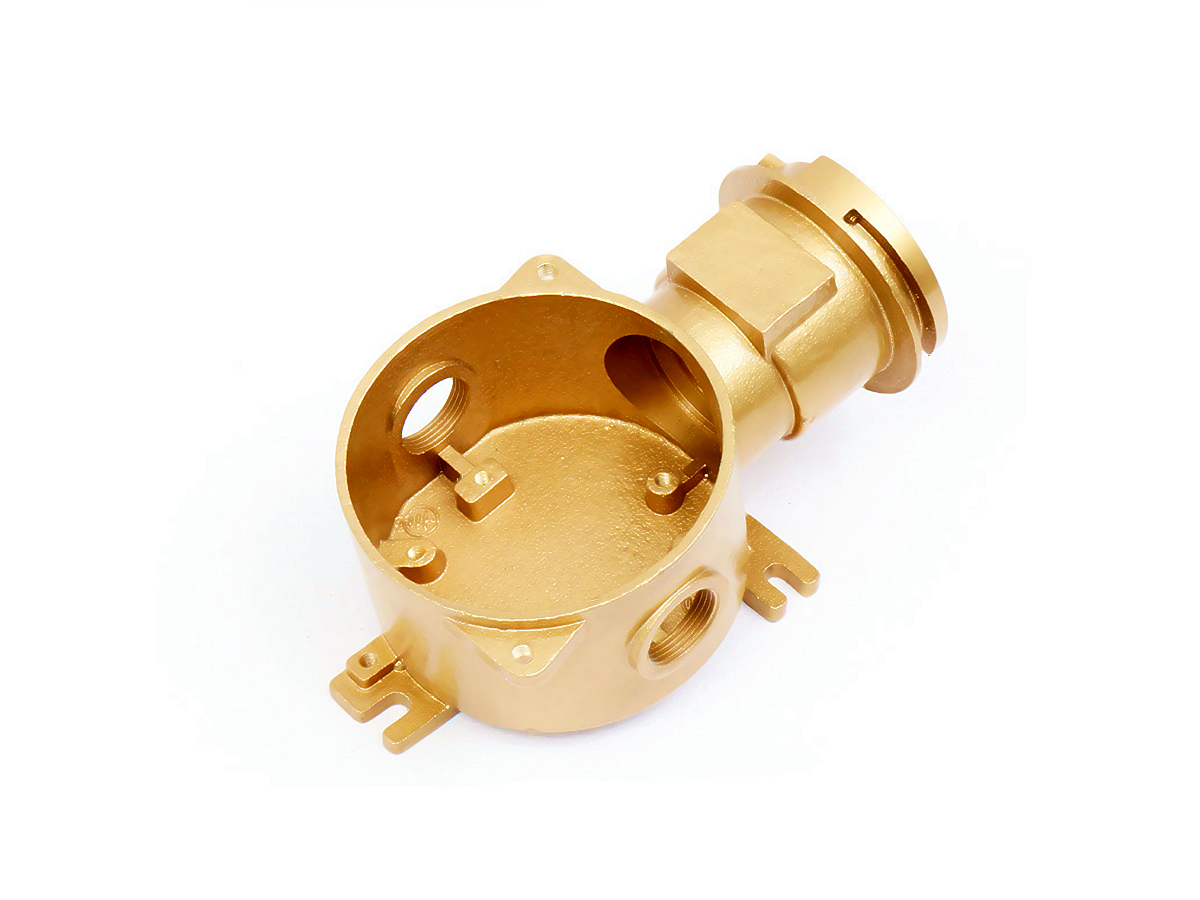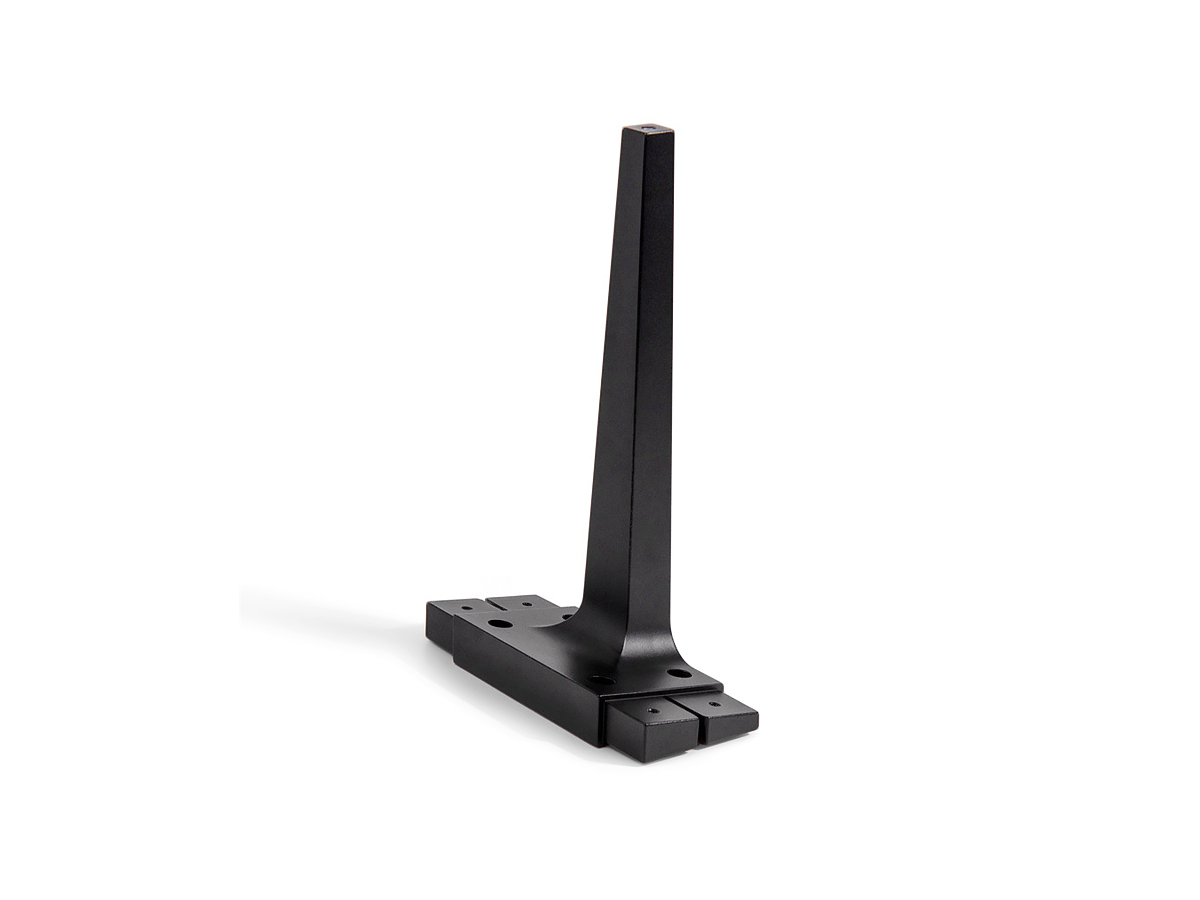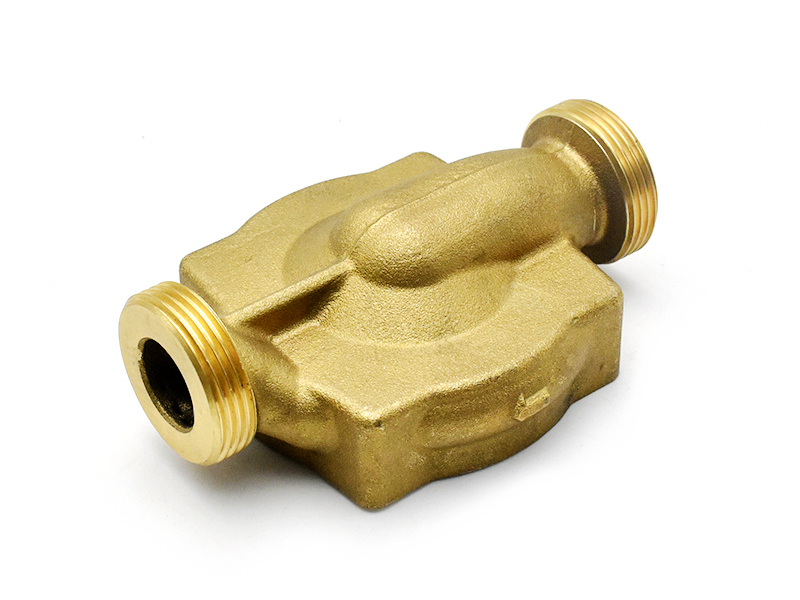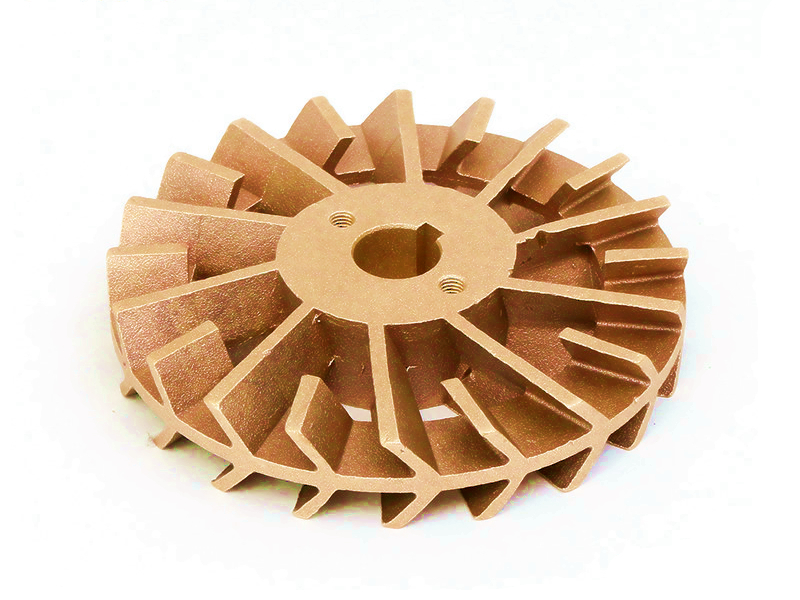Reliable Brass Die Casting Valve Body Hardware Manufacturing Service
 Valve bodies are the core structural elements in fluid control systems, ensuring proper flow regulation, pressure containment, and mechanical durability. In residential plumbing, industrial fluid transfer, and HVAC systems, valve bodies must offer precision tolerances, long service life, and corrosion resistance. Brass die casting is an efficient, cost-effective solution for manufacturing these components in large volumes, offering exceptional dimensional control and corrosion protection.
Valve bodies are the core structural elements in fluid control systems, ensuring proper flow regulation, pressure containment, and mechanical durability. In residential plumbing, industrial fluid transfer, and HVAC systems, valve bodies must offer precision tolerances, long service life, and corrosion resistance. Brass die casting is an efficient, cost-effective solution for manufacturing these components in large volumes, offering exceptional dimensional control and corrosion protection.
At Neway, we offer brass die casting services specifically tailored to the manufacturing of valve body hardware. With advanced tooling, high-performance copper-zinc alloys, and integrated machining, we produce valve bodies that meet international sealing, pressure handling, and long-term mechanical performance standards.
Why Brass Is Ideal for Valve Body Manufacturing
Brass alloys offer the ideal combination of mechanical strength, corrosion resistance, machinability, and sealing compatibility. Compared to cast iron or stainless steel, brass allows more complex shapes with tighter tolerances and smoother surface finishes—making it an ideal material for die casting valve bodies used in multi-port configurations and pressure-sensitive assemblies.
Key Advantages
Tensile strength: 350–550 MPa depending on the alloy
Pressure rating: up to 2.5 MPa (PN25) for standard plumbing and HVAC valves
Dimensional tolerance: ±0.02 mm for sealing zones and threaded ports
Excellent corrosion resistance to chlorinated water, glycol, mild acids, and air
High machinability for threading, grooving, and port finishing
Long-term sealing integrity with elastomers, PTFE, or metal seats
Brass valve bodies also offer strong vibration resistance and temperature durability up to 120°C, supporting various operating environments.
Common Valve Body Applications
Neway manufactures die cast brass valve bodies and related hardware for fluid control systems used in commercial, industrial, and residential applications.
Component Type | Application Examples | Key Requirements |
|---|---|---|
Ball Valve Bodies | Plumbing systems, gas lines, HVAC circuits | Tight shutoff, pressure containment, seat alignment |
Angle Valves | Bathroom/kitchen installations, utility shutoffs | Compact form factor, corrosion resistance, precision threads |
Gate Valve Housings | Irrigation, process water control | Smooth sealing surfaces, stem alignment, anti-corrosion coating |
Control Valve Housings | Mixing valves, thermostatic assemblies | Flow regulation channels, actuator interfaces, leak-proof fit |
Check Valve Bodies | Backflow prevention in pump systems | Sealing seat geometry, wear resistance, spring compatibility |
Brass Alloys Used for Valve Casting
Neway works with a range of brass alloys suited for pressure-rated fluid handling parts. These materials are compliant with ASTM B584, ISO 4261, and EN 1982 standards for brass castings.
Alloy | Copper (%) | Zinc (%) | Tensile Strength (MPa) | Best Use Cases |
|---|---|---|---|---|
~61 | ~35 | ~345 | High-machinability valves with threaded ends | |
~58 | ~38 | ~400 | General valve bodies, pressurized plumbing fittings | |
~62 | ~36 | ~480 | Saltwater or chemically exposed fluid systems | |
~63 | ~37 | ~450 | Low-lead and potable water compliant valve applications |
Low-lead and lead-free brass options are available to comply with NSF/ANSI 61, WRAS, and California AB1953 certifications for potable water systems.
Dimensional Accuracy and Sealing Performance
Valve bodies must maintain extremely tight tolerances to prevent leakage and ensure reliable actuation. Neway’s precision die casting process supports high-volume production with repeatable sealing geometry and thread conformity.
Port flatness: ≤ 0.03 mm for gasket or metal seat applications
Thread tolerance: ±0.02 mm for BSP, NPT, or ISO profiles
Wall thickness: 1.5–5.0 mm based on pressure rating and size
Machined sealing surface finish: Ra ≤ 1.6 µm
Core shift: ≤ 0.10 mm across cavities for bore alignment
Before shipment, all parts undergo pressure testing, dimensional inspection, and optional CMM validation.
Surface Finishing and Protective Treatments
Brass valve bodies often require additional surface protection for durability in humid, chlorinated, or aggressive chemical environments. Neway offers several post-processing options to improve corrosion resistance, appearance, and compatibility with sealing materials:
Electroplating: nickel or chrome for aesthetic and corrosion resistance
Powder coating: exterior protection with color-coded options for system identification
Painting: primer coatings for buried or enclosed applications
Tumbling: deburring and smoothing for threaded ports and sealing faces
Assembly: integration of valve balls, springs, seals, or seats
Finishes are RoHS/REACH compliant and can be validated through ASTM B117 salt spray or ISO 9227 adhesion testing.
Tooling and Production Capabilities
Neway’s in-house tool and die making supports high-complexity valve body molds with multi-slide cores and high-cavity tools for scalable production.
Die steel: H13 tool steel for long tool life and fine detail durability
Tool life: 150,000–400,000 shots depending on alloy and design
Part size: from 10 mm angle valves to 300 mm control valve bodies
Cycle time: 25–45 seconds depending on geometry
Rapid prototyping available for sample validation, including DFM and mold flow analysis
Neway supports low-volume pilot and mass production for plumbing OEMs, industrial equipment suppliers, and valve system integrators.
Case Study: Brass Valve Body for Inline Gas Shutoff
A gas systems manufacturer required a compact shutoff valve body for its inline gas distribution units. Requirements included:
Operating pressure: 2.0 MPa
Bore concentricity: ≤ 0.03 mm with stem shaft
Threads: ISO 7/1 Rp standard
Finish: nickel plated exterior
Annual demand: 200,000 units
Neway selected Brass 380 for optimal castability and strength. A 4-cavity die was used with multi-slide cores for the through-port and stem cavity. After casting, the parts were CNC machined, nickel plated, and pressure tested. The product exceeded leakage and mechanical test thresholds and entered full-scale production within six weeks.
Why Valve OEMs Choose Neway
Neway is a trusted manufacturing partner for precision valve body hardware:
ISO 9001:2015-certified production and traceability
End-to-end services including casting, machining, plating, and assembly
Support for compliance with potable water, gas, and industrial safety standards
Scalable capacity and global supply chain integration
Engineering support for mold design, material selection, and product validation
We deliver cost-effective valve body solutions with consistent quality and performance, whether for HVAC, plumbing, gas regulation, or fluid automation.
Conclusion
Brass die casting offers the ideal strength, corrosion resistance, and dimensional accuracy for manufacturing valve body hardware. With advanced casting capabilities and integrated finishing, Neway supports OEMs and system manufacturers in producing high-performance valve components for critical fluid control systems. Our solutions are built to meet industry standards while optimizing production efficiency and long-term reliability.
To begin your next valve body casting project, contact Neway for a consultation or quote.
Frequently Asked Questions
What brass alloy is best suited for potable water valve bodies?
How accurate are the thread and bore tolerances in cast brass valves?
Can brass valve bodies handle chemical or high-temperature fluids?
What is the lead time for prototype and full-scale valve casting?
What finishing options improve brass corrosion resistance in valve applications?



